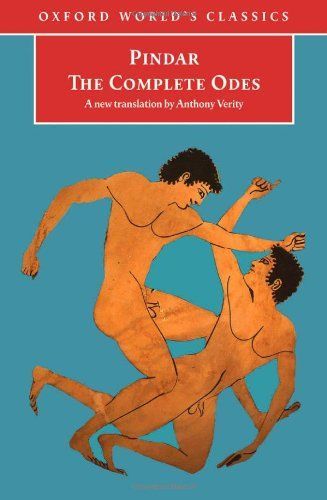
The Complete Odes
The Greek poet Pindar (c. 518-428 BC) composed victory odes for winners in the ancient Games, including the Olympics. The Odes contain versions of some of the best known Greek myths and are also a valuable source for Greek religion and ethics. Verity's lucid translations are complemented by insights into competition, myth, and meaning. - ;'we can speak of no greater contest than Olympia' The Greek poet Pindar (c. 518-428 BC) composed victory odes for winners in the ancient Games, including the Olympics. He celebrated the victories of athletes competing in foot races, horse races, boxing, wrestling, all-in fighting and the pentathlon, and his Odes are fascinating not only for their poetic qualities, but for what they tell us about the Games. Pindar praises the victor by comparing him to mythical heroes and the gods, but also reminds the athlete of his human limitations. The Odes contain versions of some of the best known Greek myths, such as Jason and the Argonauts, and Perseus and Medusa, and are a valuable source for Greek religion and ethics. Pindar's startling use of language - striking metaphors, bold syntax, enigmatic expressions - makes reading his poetry a uniquely rewarding experience. Anthony Verity's lucid translations are complemented by an introduction and notes that provide insight into competition, myth, and meaning. -